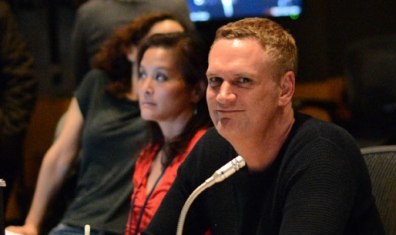
|
«There’s no reason a modern score can’t be theme-driven and thoughtful» First of all, thank you very much for the privilege of this interview. We will focus in your last effort as editor and composer returning to the X-Men franchise, with some questions too about your fourth score for Jaume Collet-Serra with Non-Stop. X-Men Days of Future Past -Well, I suppose everybody is asking you these days about being the only composer that is an editor as well, double feature that you accomplish when you collaborate with your friend Bryan Singer, like this time with your return to the X-Men universe with Days of Future Past, but that is too obvious for a question, and here we go with another angle to it. Please, can you tell us the way you organize your work focusing in the combination editing/scoring that you need to have in mind while collaborating with the director and producers’ vision? Is it difficult to attend the requests of editing and re-editing the final touches to the film when you are composing and scoring it in the final steps of the process? -Even though I’m worried about the score from day one, it’s not something that plays much into things while I’m constructing the movie. I may have in the back of my mind the type of music that may go in a scene I’m creating, but I only have time to deal with an endless array of loose ends, logic issues, getting the shots I need, storyboarding, working on pre-visualizations of scenes, and doing the assembly of sequences as fast as I can while we’re shooting. People may be surprised that my editor’s cut is practically dry of any music. I don’t like to rely on the music to fix problems right away; I want the issues to present themselves upfront and deal with them head on. That way the music will simply bring more out of the film and won’t have to be masking issues that haven’t been dealt with. Only after I view the whole film do I put the temporary music on the movie for screening purposes. -What were your sensations when you were definitely attached to Days of Future Past, in terms of revisiting your own legacy for the characters that you so well established back in time during the creation of the thematic material for X2? The X-Men theme is in my opinion the strongest and most powerful one that have been composed for the saga, and it is terrific to have it back, how do you decide in which moments a nod here and there needs to be present to give structure and sense of purpose and motion to the new story? -My memories of X2 are pleasant ones, and it was my first large-scale thing to tackle. It was an exciting time, although very overwhelming of course. I grew to love the world of the accident, combined with the actors who played them. It was a thrilling place to be. So to come back into that world was exciting for me, even though I was pretty burned out after two years on Jack the Giant Slayer. And of course I’m thrilled to have my theme back, and it’s one of the first things I thought of when we were going to do another X-Men film – to finally give some continuity between at least two films musically. I think Bryan was initially afraid of the theme because it would imply that we were being too nostalgic, like Superman Returns. I kept explaining to him that it’s contextual. If you update the film, it will update the theme by default. Plus I think the theme is pretty timeless for this franchise. And, well, I agree with you about the theme! I’m slightly biased of course. The film doesn’t give rise to playing the main theme too often. I had to search for areas where it made sense for nods. I might have done more, but I knew Bryan was slightly afraid of it. So I was careful not to use it too much. – Please, could you tell us about the little tributes and nods to the whole X-Men musical saga that you disseminate cleverly through the whole score, helping to feel the sensation of a unique music universe for the characters? -Well, actually there are new motifs and themes here. Charles Xavier never had a theme, so that’s a new theme and the center piece of this film. I also wrote a new motif for Raven, not based on the original theme from X2. The only hold-over is Magneto’s theme, which was brief in X2. I expanded on it a bit here and used it as a sort of ominous motif, usually two notes, in this film. There is a brief nod to Stryker’s theme from X2 in the Paris sequence when Wolverine sees young Stryker. Only the most die-hard of die-hards would notice! I also reprised some chords that we’re used under Jean Grey from X2. As for other composers, I didn’t really reuse any of their material. There was talk about reprising Henry Jackman’s Magneto’s theme from First Class. But there’s an interesting phenomenon that kept me from using it for Magneto. In the end of the movie, when Logan is dredged up onto the boat, I originally temped with Wolverine’s theme from X2 («The Augmentation Room»). When you listen to this theme, you realize that it’s practically identical to Jackman’s Magneto theme. I think they must have temped First Class with my theme for Wolverine, or it was just a total coincidence that it’s the same notes and chords. So if I had used to this theme for Magneto in the film, it would have been totally confusing when we heard it for Logan being dredged up from the water at the end. Very late in the game, however, I changed the music for the boat scene because we wanted to change the feeling of it by adding voice over and such. But by that time, I had already written the score. -You have said proudly is some occasion that you are a Trekkie, and that your shared love with Bryan for Star Trek and specially for The Wrath of Khan has given you both ideas for your films. For instance, could the Jean Grey final words at the end of X2 be your tribute to the mythical Leonard Nimoy´s final speech in Star Trek II?, maybe we could find something like this that you can advance us in Days of Future Past? -Yes, exactly, the end of X2 was indeed inspired by from Star Trek II! That film was always sort of a reference point for us, because we believe it to be such a great piece for character arcs and a terrific and romantic script. The original ending to Days of Future Past did not have any voice over. This was a last-minute idea to give the end of the film some elegance and a thrilling build to the end titles, ala X2. It totally saved the end of the film! -Could you share with us how it is your collaboration with Bryan in your films together, he works with you in the editing room or just gives you the ideas to get the momentum and gravitas he is searching for the movie?. In the scoring process, he participates in terms of choosing for example one particular instrument for a character or if some theme need to be more symphonic or maybe with some electronics here and there, or just gives the ideas to be developed, and you start from there? –Bryan is actually a reactor. He likes me to present him ideas that he responds to like an audience member. His only instruction for this film was that it had to be dark, and that the score had to feel more “modern.” He really allows me to have my hand on the wheel of the ship and guide it to the dock. He comes in tells me how he’s feeling about the voyage I’m navigating, and I might steer the ship from place to place before docking. -More than twenty years have passed since your modern classic masterpiece, The Usual Suspects (my very favourite of your scores), and a lot of films together, how do you feel this time in terms of your evolution as an editor, composer and film artist with Bryan? -Back to the X-Men world, what were the elements you needed for this score and which direction you were requested to follow, and the differences between this composition and your first one for the franchise?. Could you tell us about the creation of the first theme the character of Professor X has ever had in a film, your impressive “Hope (Xavier’s Theme)”, and the implications of your music to define the action and the character on screen? -The only direction I got was for the score to be more ”modern”, therefore I built in far more synthesizer elements than the original score. Plus it just made sense for the tone and backdrop of this film. I had fun in blending analog synths, basses, guitar and electric piano into some of the music that took place in the 70s. The sentinels of the past have a retro synth pulse. Many of those cues are not on the soundtrack album. I had to cut something! There are quite a number of cues that are 90% synth (a very laborious process to produce these tracks) and were merely sweetened with the orchestra. Professor Xavier’s theme was the first thing I wrote, and it inspired me because I found an emotional thread for the score. Since the film is really about him trying to rediscover the hope he’s lost, the theme had to be forlorn and conflicted. It also had to contain a hopeful quality that I could play up later. One of my favorite moments in the score is when Charles enters Cerebro after having not been in it for a while. Because Cerebro is an extension of Charles, I had the music swell euphorically as he enters it, only moments later he’s shocked at the pain of the world he is unable to handle. -Was it hard to convey the action material with the character development and the arc of the story with the change of timeline and description of another era like the seventies? Did the period songs help you to pace the film in the editing process? Who chose them? Despite the change in timelines, I still saw it as one linear story. So it really didn’t present as any musical problems as one may expect. Songs, as long as they’re organic to the story, are a great way to propel a story and makes it more classic and fun. I was always trying to find source material to use as opposed to score in some areas. I always say for period film that if you can do it with source, do it!. I chose many of the songs, however not the two featured classics, “Time in a Bottle” and “The First Time I Ever Saw Your Face”. When I was working with the previs team to design the Quicksilver sequence, our previs artist put that song on the animated version of the scene and we all fell in love with it. It still translated when we filmed it and edited together. “The First Time I Ever Saw Your Face” was scripted. There was talk of changing it when Logan wakes up in the future, but I fought to keep it the same exact song and arrangement so it would be far more classic and to use as a musical bookend. -The last cue of score in the CD is astounding, with the finale of the film, and the most stunning rendition to the thematic material of the movie you could ever imagine, perfectly and masterfully conveying a moving coda, and an exhilarating merging of the X-Men Theme as a group and Xavier’s as their leader, concluding with one theme being the counterpoint of the other fighting gracefully to achieve a magnificent closure. Was this you initial idea, and please, could you tell us how you developed it? -I wish I could say I had preconceived this happy accident, but I didn’t! When composing the end titles rendition of the theme, I wanted to intertwine Charles’s theme somehow, and it was shockingly easy, almost like I had subliminally thought about it when composing his theme. Maybe it was in the back of my head all along. -What can you advance us about the direction the characters are going for the next film, X-Men Apocalypse, and is the possibility of your return for a third film a fact at this point? -To tell you the truth, I’m not exactly sure. They are still sketching out the major beats of the story. There’s no real details figured out yet. Yes, as usual, I’m part of the Bryan Singer equation. It’s mine to say no to. I’m pretty exhausted. As you know, it’s a completely overwhelming task to edit, compose, and essentially ghost produce one of these projects. The thought of going right back into one is daunting. I also lose a tremendous amount of scoring work in that time. So I always have to think about it a little bit before committing to total life destruction for a year or more!, haha. Non-Stop -Non Stop means your fourth collaboration with the director Jaume Collet-Serra, after House of Wax, Orphan and Unknown, how is your teamwork with him in terms of music, and which are the guidelines he gave you for the creation of this score? -The film is a constant crescendo of tension and suspense, how did you decide the structure and in which point of the composition you found the main theme for the film? -I like to establish the themes up front, that way I know where the score is coming from when I write it. The very first scene in the film with Liam’s character in his car outside the airport used to be a long title sequence. I did many different versions of this that producer Joel Silver reacted too. He wanted Liam’s character to be very tortured like a “highly sprung spool.” At least, that was the original concept. After many different ideas, it went into a slightly more empathetic version with piano, synth and strings. It was a very long piece, but then the opening got cut down and the titles got thrown into the back of the movie. By the end of the film, it was fun to pull out the stops and play the theme in an aggressive, slightly retro style. -Non Stop has a terrific Main Theme that it is developed with subtlety through all the score until it finally explodes in the magnificent End Credits cue (that appears first in the CD release), in the grand tradition of Jerry Goldsmith, was this a decision you made about the score presentation in CD?, and was it hard to define musically the personality of the film in this case? -Well, since the Main Theme, (Bill’s theme) is often so fragmented in the film; I didn’t want the CD listener to get frustrated and bored. So I thought the end credits version would be best to start out the CD so the theme was established clearly for the listener. Since the score is largely one propulsive throbbing cue after another, it was hard to design the score to stay interesting and evolve somehow. It was even a bigger challenge to edit it down for the CD so the listener didn’t want to slit their wrists!, haha. The maddening thing for me is when scores are judged by the CD. You can have an amazing sounding score on a CD, but it may be inappropriate, horrible, or goofy on the film itself. The true judgment is how it works on the movie. -That’s why we are so proud at BSOSspirit to review the scores only after having watched the film, not just with the overview of having listened to it in the CD firstly. The music needs to match the film and makes it grow being a second skin to it, then it is the CD. Were the plot of the film and the prominence of an unique space, the plane, a challenge in order to create the music not having the chance of going out to take some air as a way of speak? -Jaume is working right now in a new film with Liam Neeson, Run All Night, are you attached to the film, will you compose the score?, if the answer is yes, can you advance us some words about how this score will or could be? -One of the casualties of going away to editing jail for over a year ( X-Men) is that I risk losing relationships I’ve established. While I was shooting X-Men, Jaume began shooting Run All Night. Obviously I was unavailable. I heard that presently he’s got Alan Silvestri. So perhaps he will begin a new relationship. It’s upsetting; and again, the frustrating cost of going off to make a film with Bryan. -Thank you so much, John, Greetings from Spain, All the very best! {youtube width=»330″ height=»186″}O4rl47uDxUQ#t{/youtube} Photos by Dan Goldwasser/ScoringSessions.com |
Author BIO: John Ottman holds dual distinctions as a leading film composer and an award winning film editor. Ottman has often completed both monumental tasks on the same films. Such remarkable double duties have included The Usual Suspects, Apt Pupil, X-Men 2, Superman Returns, Valkyrie, and Jack the Giant Slayer. He has also held producer roles on several of these films, as well as directing, editing and scoring Urban Legend Final Cut. From an early age in San Jose, California, Ottman began writing and recording radio plays on cassette tapes. He’d perform many characters with his voice (and some sound effects), and called upon his neighborhood friends as extra cast members. By the fourth grade, Ottman was playing the clarinet and continued doing so throughout high school. But his real concentration turned from audio productions to making films. He turned his parents’ garage into a movie studio, where multiple sets were interchangeable to accommodate productions – invariably some sort of science fiction film. By high school, his films evolved to hour-long productions complete with large sets and lavish scores edited together from his favorite soundtracks. Having been a veteran of numerous short films, Ottman excelled at USC film school, receiving accolades for his direction of actors and for how masterfully he edited their performances. It was in this directing course that a graduate filmmaker asked Ottman to re-edit his thesis film. John modified the story from raw footage and also designed the film’s extensive sound. The film ended up winning the Student Academy Award. On that film, Ottman met a production assistant named Bryan Singer. Singer, only aware of Ottman’s editing, asked him to edit a short film starring Ethan Hawke – a childhood friend of Singer’s. Ottman ended up co-directing the film (Lion’s Den) as well as editing and doing the sound design. Ottman edited Singer’s first feature, Public Access. His effective sequences and editorial montages became the highlight of the picture. In the eleventh hour, the film lost its composer. Singer asked Ottman to write the score. Public Access received the Grand Jury Prize at the 1993 Sundance Film Festival, with the score and editing being lauded in reviews. With The Usual Suspects and future Singer films, Ottman held to a promise that, despite his scoring dreams, he would commit to the months required to also serve as editor on Singer’s films. The wary producers of The Usual Suspects gave the go-ahead for him to both edit the complicated picture and write the score, the demands of which no one had undergone. The film was edited in Ottman’s living room. The Usual Suspects and Ottman’s work received widespread acclaim, earning Ottman the British Academy Awards for his editing, a Saturn Award for his score, and a nomination by the American Cinema Editors. Since then, Ottman has scored numerous films with the intent of keeping thematic film scoring alive. John also made a brief foray into television for which he received an Emmy nomination (Fantasy Island). Some others of his most brilliant compositional efforts along the years are Snow White, Incognito, The Cable Guy, Eight-Legged Freaks, The Bubble Boy, Cellular, Astro Boy, Fantastic Four and its sequel Rise of the Silver Surfer, Hide and Seek, Imaginary Heroes (with Deborah Lurie), Pumpkin, Lake Placid or Goodbye Lover. (Source: http://www.johnottman.com/biography/)

Website – John Ottman: |


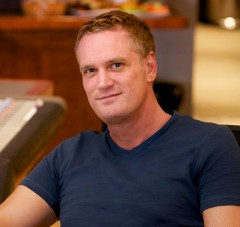
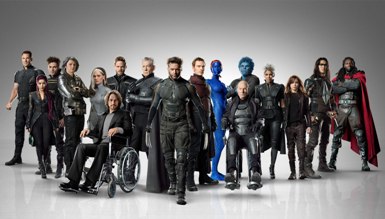
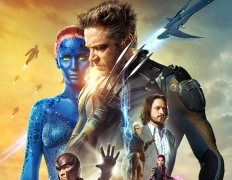 The endless editorial tinkering never stops and is why it’s very difficult for me to stay in my music writing zone. It’s not like I can tell everyone that I’m going to go score the movie now and to stop all editorial changes. It doesn’t happen that way. During my writing time there are endless test screenings, notes from the studio, things we try story-wise, looping actors’ dialogue, visual FX issues, planning pick-up shots, etcetera etcetera. So yes, to say it’s difficult is an understatement. The writing of the score and the constant re-jiggering of the movie, especially one this complicated, is it brutal overlap for me.
The endless editorial tinkering never stops and is why it’s very difficult for me to stay in my music writing zone. It’s not like I can tell everyone that I’m going to go score the movie now and to stop all editorial changes. It doesn’t happen that way. During my writing time there are endless test screenings, notes from the studio, things we try story-wise, looping actors’ dialogue, visual FX issues, planning pick-up shots, etcetera etcetera. So yes, to say it’s difficult is an understatement. The writing of the score and the constant re-jiggering of the movie, especially one this complicated, is it brutal overlap for me.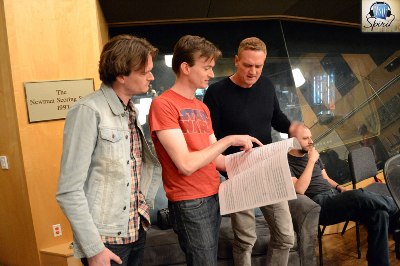

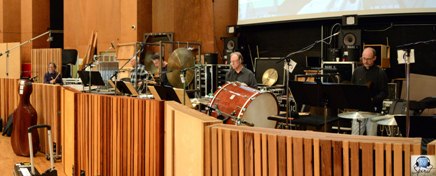
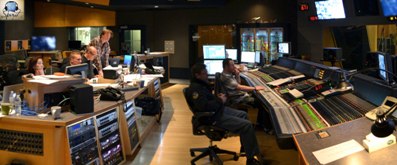

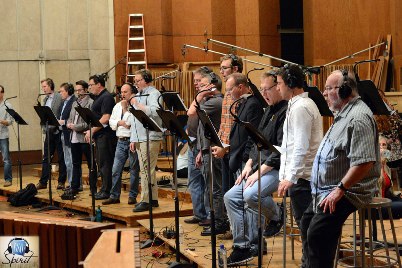
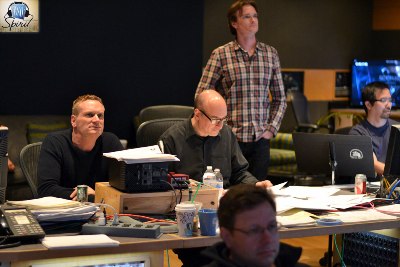
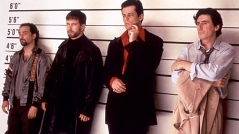 -This was an extremely complicated film that required a lot of strategic manipulation to make it work. In some ways I’m not sure how much has really changed since Suspects aside from the tools I have. Suspects was also a very complex story with much retelling of it and manipulation editorially, just as with this one. The difference now is that we can afford to go and shoot things that I need more easily, because we have a bigger budget. But it’s all about having a story-telling sensibility and understanding how to best clarify things and make the film both entertaining and intelligent at the same time. I do believe I’ve grown as a composer. And film music itself has, of course, changed over the years, perhaps not for the better. I try to stay relevant as a composer in modern times but without losing the traditional sensibilities I learnt from the masters such as Williams and Goldsmith. There’s no reason a modern score can’t be theme-driven and thoughtful. It doesn’t always have to be a drum-loop. That’s the easy way. Bryan and I both believe that the best period in film was the 70s. So I think all of our films are influenced by the more pure and raw films of that era in some way.
-This was an extremely complicated film that required a lot of strategic manipulation to make it work. In some ways I’m not sure how much has really changed since Suspects aside from the tools I have. Suspects was also a very complex story with much retelling of it and manipulation editorially, just as with this one. The difference now is that we can afford to go and shoot things that I need more easily, because we have a bigger budget. But it’s all about having a story-telling sensibility and understanding how to best clarify things and make the film both entertaining and intelligent at the same time. I do believe I’ve grown as a composer. And film music itself has, of course, changed over the years, perhaps not for the better. I try to stay relevant as a composer in modern times but without losing the traditional sensibilities I learnt from the masters such as Williams and Goldsmith. There’s no reason a modern score can’t be theme-driven and thoughtful. It doesn’t always have to be a drum-loop. That’s the easy way. Bryan and I both believe that the best period in film was the 70s. So I think all of our films are influenced by the more pure and raw films of that era in some way.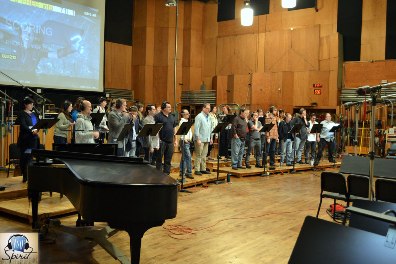
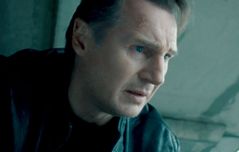 –Jaume is a very easy going guy and trusted me to come up with the musical identity for his films. He’s very much like Bryan in that regard, where he responds to ideas and approaches I come up with and suggest. He did, however, tell me from the beginning of Unknown that he was looking for the music to play from the point of view of Liam Neeson’s confused character – a man in love with his wife who suddenly doesn’t know who he is. This approach simultaneously helped the audience sympathize and identify with him while also serving as a mis-direct. So I did a sort of love theme with piano that I manipulated throughout the score. My favorite thing to do as a composer is to delve into a character’s psychology and give it a musical identity and empathy.
–Jaume is a very easy going guy and trusted me to come up with the musical identity for his films. He’s very much like Bryan in that regard, where he responds to ideas and approaches I come up with and suggest. He did, however, tell me from the beginning of Unknown that he was looking for the music to play from the point of view of Liam Neeson’s confused character – a man in love with his wife who suddenly doesn’t know who he is. This approach simultaneously helped the audience sympathize and identify with him while also serving as a mis-direct. So I did a sort of love theme with piano that I manipulated throughout the score. My favorite thing to do as a composer is to delve into a character’s psychology and give it a musical identity and empathy.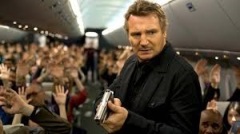 -Yes, as I inferred above, that was the obvious challenge of this film, to keep things interesting and continuously evolving in a confined space. The tension and intrigue had to keep growing so I always had to make sure the score had somewhere to go in its grand “design” and stay fresh. There was also a “texting” motif characterized by rattling wood and a sonar-like ping to identify the killer on board.
-Yes, as I inferred above, that was the obvious challenge of this film, to keep things interesting and continuously evolving in a confined space. The tension and intrigue had to keep growing so I always had to make sure the score had somewhere to go in its grand “design” and stay fresh. There was also a “texting” motif characterized by rattling wood and a sonar-like ping to identify the killer on board.

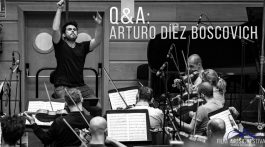
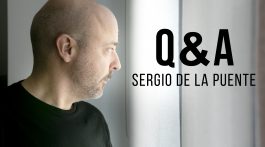
No hay comentarios